research
Latest
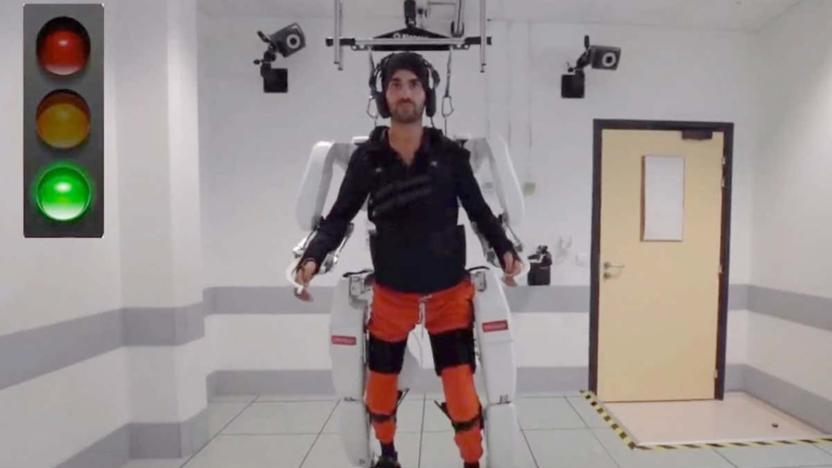
A mind-controlled exoskeleton helped a paralyzed man walk again
A paralyzed man regained the ability to walk with the help of a robotic exoskeleton that he controlled with his mind. Unlike other, more invasive mind-controlled robotics, this one used electrodes implanted above the brain's outer membrane, not in the brain itself. That could reduce the risk of infection and other obstacles that have limited the success of mind-controlled robotics.

MIT’s algorithm could improve imaging techniques used during pregnancy
The placenta plays a critical role in pregnancy: connecting the fetus to the maternal blood system. But assessing placental health is difficult because modern imaging techniques provide limited information. Researchers from MIT's Computer Science and Artificial Intelligence Lab (CSAIL) think they might be able to change that using a volumetric mesh-based algorithm.

Researchers are using drones to study the Amazon rainforest's health
Researchers from Harvard University are using drones to better understand the Amazon rainforest. With drone-based sensors, the researchers hope to determine the unique "fingerprint" of different rainforest ecosystems. That could help them monitor the health of the forest and understand how it's responding to climate change, deforestation and fire.

Facebook says it's doing more to prevent suicide and self-harm
In recognition of World Suicide Prevention Day, Facebook shared three additional steps it's taking to prevent suicide and self-harm. On top of changes Facebook made in the past year, the company says it's hiring a health and well-being expert to join its safety policy team. Facebook plans to share its social media monitoring tool, CrowdTangle, with select academic researchers who will explore how Facebook and Instagram can further advance suicide prevention. And the company is including Orygen's #chatsafe guidelines in Facebook's Safety Center and in resources on Instagram when someone searches for suicide or self-injury content.

Harvard's noodly robot fingers are great at grabbing jellyfish
Robots can be a bit heavy-handed. Their forceful grip might not be a problem when they're moving boxes in a warehouse, but they can damage fragile marine creatures like jellyfish. Researchers may have a solution. They've created a robotic hand with a squishy grabber and a gentle grip that uses "fettuccini-like silicone fingers" to catch and release fragile, gelatinous jellyfish.
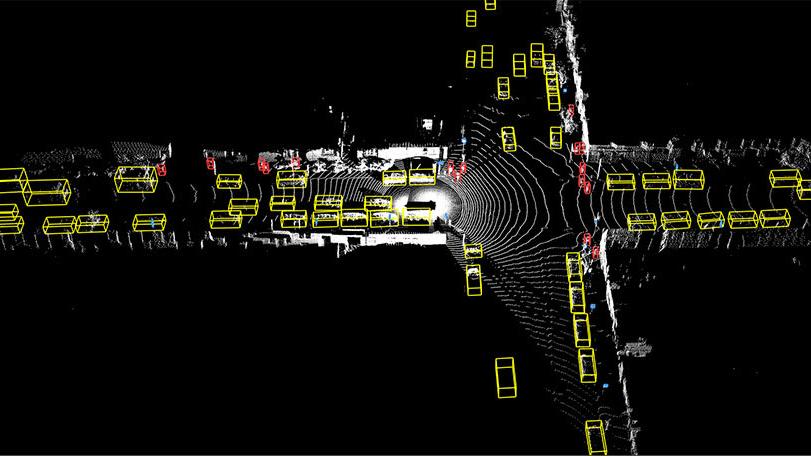
Waymo shares some of its self-driving car data to help researchers
Self-driving car data is intensely valuable, and it's frequently considered one of Waymo's advantages -- it has more experience than virtually anyone. Now, however, the company is sharing some of that knowledge with the rest of the world. It's launching a Waymo Open Dataset that gives researchers free access to synced camera and LiDAR data from the company's autonomous vehicles across a variety of driving conditions and locales. It only covers 1,000 driving segments of 20 seconds each, but that's 200,000 frames per sensor, 12 million 3D object labels and 1.2 million 2D labels -- that could be a lot to work with.

App allows citizen scientists to track monarch butterfly migration
If you've ever pulled out your phone to take a picture of a butterfly, researchers want your help. A team from the University of Maine is using an app that lets citizens scientists along the East Coast take photos of monarch butterfly migration sites and log details about where they're found. The responses will be compiled in an online database and help researchers determine if their monarch migration predictions are accurate.

Facebook is inching closer to a think-to-type computer system
Elon Musk isn't the only one who wants us to communicate via brainwaves. Facebook also has ambitious plans to interface with computers using wearables and one day let us type rapidly with our brains. Now, neuroscientists from the University of California, San Francisco (backed by Facebook's Reality Labs) have demonstrated a system that can translate speech into text in real time using brain activity only. While impressive, it shows that the technology still has a long ways to go.

‘Quantum microphone’ detects sound at the atomic level
Researchers at Stanford have developed a "quantum microphone" which can detect the smallest known units of sound -- packets of vibrational energy called phonons. The device could form the basis for even more efficient quantum computers.

Scientists used phone accelerometer data to predict personality traits
Our phones contain a disturbing amount of information about us. While calls, messages, app usage and location logs have all been used to profile users, phone accelerometers contain key information, too. Researchers from the Royal Melbourne Institute of Technology (RMIT) University used the tiny sensors that track phone movement for things like step-counting to predict five key personality traits.

Huawei lays off two thirds of its US research division
The rumors of Huawei laying off a large chunk of its US staff have come to pass. The company is cutting over 600 of the 850 jobs at its Futurewei Technologies research wing in the country in response to the "curtailment of business operations" by the US government's trade blacklisting. Simply put, the researchers can't do their jobs now that it's illegal for Futurewei to transfer much of its work to its parent company.

A mind-controlled robot arm doesn’t have to mean brain implants
A robotic arm smoothly traces the movements of a cursor on a computer screen, controlled by the brain activity of a person sitting close by who stares straight ahead. The person wears a cap covered in electrodes. This "mind-controlled" robot limb is being manipulated by a brain-computer interface (BCI), which provides a direct link between the neural information of a brain that's wired to an electroencephalography (EEG) device and an external object.
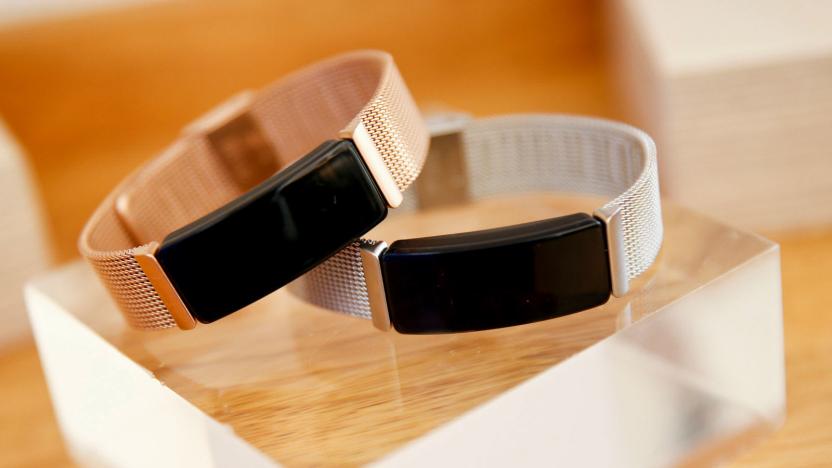
A Bluetooth vulnerability could give hackers your location
Your Fitbit and other Bluetooth gadgets could be giving away your location data. Researchers from Boston University (BU) detected a vulnerability in several high-profile Bluetooth devices that could allow third-parties to determine your location and other sensitive information. In the wrong hands, that information could be used for stalking or abuse. That's especially concerning given that basically everyone is carrying around a Bluetooth device.
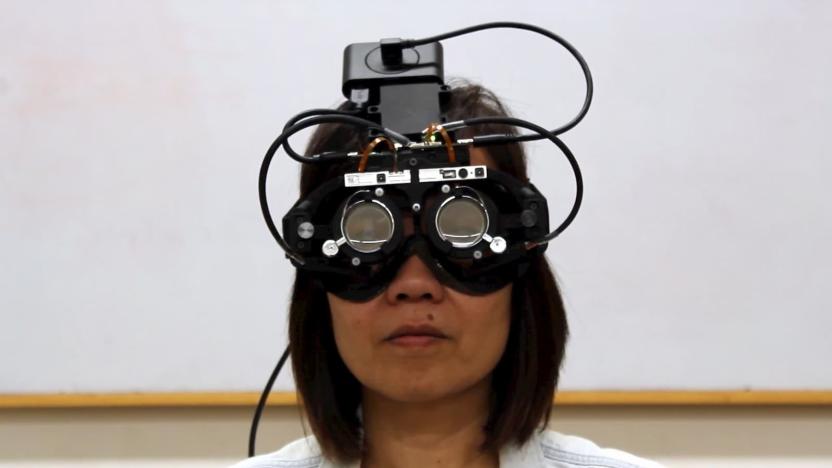
Researchers create eye-tracking glasses that auto-focus where you look
Researchers at Stanford University have created glasses that track your eyes and automatically focus on whatever you're looking at. The so-called autofocals, detailed in a paper published in the journal Science Advances, could prove a better solution than transition lenses or progressive lenses.

MIT made an AI that can detect and create fake images
Creating digital renderings and editing images can take hours, but researchers from MIT and IBM want to change that. They've trained AI to generate photographic images from scratch and to intelligently edit objects inside them. While this could be beneficial for artists and designers, it also offers insight into how neural networks learn context, and the team hopes to leverage the tool to spot fake or altered images.

Scientists think some supermassive black holes didn’t start as stars
Despite the fact that scientists now have a real image of a supermassive black hole, they still have plenty of questions about the objects. Now, astrophysicists at Western University may have a new explanation for how some black holes formed. In research published in The Astrophysical Journal Letters today, Shantanu Basu and Arpan Das suggest that not all black holes emerge from star remnants. Their model may help scientists explain the formation of extremely massive black holes at a very early stage of the universe's development.

Carnegie Mellon will help Argo AI advance its self-driving vehicle tech
Ford's autonomous vehicle arm Argo AI is already testing self-driving vehicles in a handful of cities. But the company has a few key puzzles to solve before it can deploy its fleets on a large scale. To help answer the remaining questions -- like how can autonomous vehicles reason in highly unstructured broken-traffic conditions -- Argo is partnering with Carnegie Mellon University (CMU). The newly formed Carnegie Mellon University Argo AI Center for Autonomous Vehicle Research will work to advance the next-generation of self-driving tech.
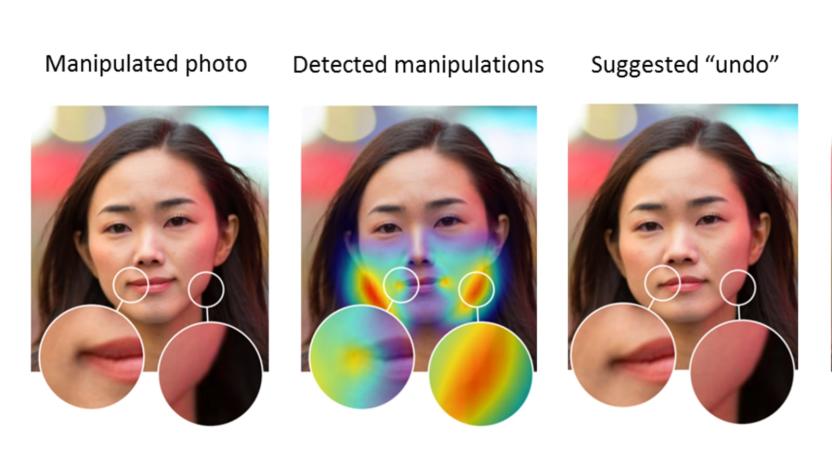
Adobe trained AI to detect facial manipulation in Photoshop
A team of Adobe and UC Berkeley researchers trained AI to detect facial manipulation in images edited with Adobe Photoshop. The researchers hope the tool will help restore trust in digital media at a time when deepfakes and fake faces are more common and more deceptive. It could also democratize image forensics, making it possible for more people to uncover image manipulation.

Facebook tries another pay-for-data market research app
Facebook is launching a new market research app to gather data from users' phones. The company wants to know which apps users have installed, the amount of time they spend on those apps and users' device and network types. In exchange, users will be compensated with an undisclosed amount of money. As you may remember, earlier this year, Facebook met criticism for secretly paying teenagers for access to their data. This appears to be the company's attempt at a new and improved market research app.

Americans consume an alarming amount of microplastics
Americans consume tens of thousands of microplastic particles every year -- and that's just from the food we eat. Microplastics are also found in the air we breathe and the water we drink. Thanks to a study published in the journal Environmental Science & Technology, we have a better idea of just how much plastic Americans consume.





